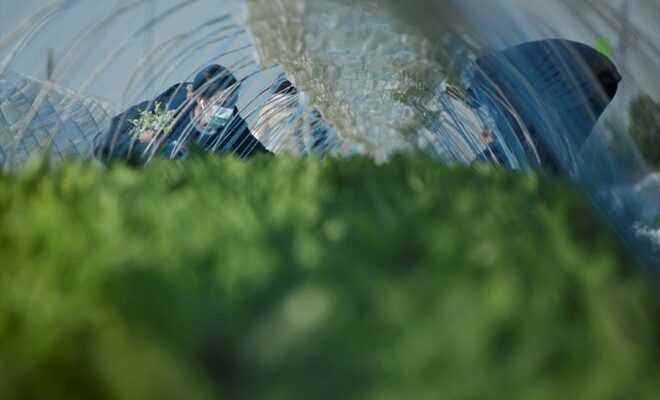Foreign seasonal workers have become an indispensable cog in French agriculture (AFP/Archives/RAYMOND ROIG)
Foreign seasonal workers, who have returned in large numbers since the lifting of restrictions linked to Covid-19, have become an indispensable cog in the wheel of French agriculture. They are now courted by other sectors, at the risk of institutionalizing the use of precarious, even “exploited” labour.
In agricultural companies, this labor force has become so essential over the years that employers have asked the French authorities to organize exceptional airlifts at the height of the pandemic, to transport arms while the air links were at a standstill.
The French Office for Immigration and Integration (Ofii) thus brought in 900 Moroccan workers in October 2020 to “save the harvests” of Corsican clementines. Or 300 others in December of the same year to Bouches-du-Rhône and Vaucluse to work in market gardening and horticulture.
“Production is highly dependent on foreign labor”, agrees Daniel Sauvaitre, general secretary of Interfel, the fresh fruit and vegetable sector in France, which mainly brings together European workers (Portugal, Spain, Romania, Poland …) or North Africans.
“It’s going very well, it’s a precious workforce, which generally already has know-how”, adds the apple producer in Charente, who would welcome the acceleration of this recruitment, because “we always lack arms”.
– Three times more arrivals –
“During the Covid crisis, we organized specific flights because it was a necessity. But now commercial flights have resumed and the usual seasonal workers are already there”, explains to AFP the director general of Ofii. Didier Leschi.

Foreign seasonal workers have become an indispensable cog in French agriculture (AFP/Archives/Pascal POCHARD-CASABIANCA)
Before the pandemic, in the first four months of 2019, 2,686 of these workers had been sent only by Ofii, mainly Moroccans, but also a few Tunisians, who have come for a few months each year since the signing. special bilateral conventions in the 1960s.
In 2020, over the same period, the number had fallen to 1,238. Since the gradual lifting of restrictions, arrivals have soared in the first four months of 2022: 3,868 Maghreb nationals are employed on French farms.
A model that is the subject of covetousness, with seasonal workers generally “hired directly by employers” via a “simplified” device and “exemptions from employer social charges”, according to the Ministry of Agriculture.
The employers of the hotel and catering industry “do not refrain from looking at the good practices of other sectors, such as agriculture”, explained to AFP Thierry Grégoire, the president of the Umih seasonal workers (main union of the sector), mid-May.
In shortage of labor this summer, especially among waiters, Umih turned to Tunis to try to reach an agreement on the arrival of Tunisian seasonal workers, by 2023.
– “Trafficking in human beings” –
The model of seasonal agricultural workers “is unfortunately often taken as an example, when it is far from being a panacea”, worries Marilyne Poulain, who leads the CGT Immigration Collective.

Foreign seasonal workers have become an indispensable cog in French agriculture (AFP/Archives/Sebastien SALOM-GOMIS)
“It is a precarious status which induces an exclusive link between the worker and the employer, a problematic link of dependence. If a worker breaks his contract with an employer, he no longer has a residence permit. This generates situations trafficking in human beings”, explains the union official, referring to cases of “exploited” foreign workers.
Especially since in order to be able to trace the device elsewhere, you have to think about the ecosystem that accompanies it, warns Didier Leschi: “The agricultural sector has been organized for years on the subject. Farmers have set up hosting systems available to seasonal workers. So it could apply elsewhere, but restaurants, cafeterias, how are they going to accommodate these people? There is an overall reflection to be had, it does not happen with a snap of the fingers “.
Not to mention that the use of labor from abroad is potentially to the detriment of job seekers already present on French soil.
“No doubt we need seasonal workers with specific know-how”, continues the boss of the Ofii, “but we have granted refugee status to tens of thousands of people for years. Our concern today is is to support these people towards integration.”
© 2022 AFP
Did you like this article ? Share it with your friends with the buttons below.




